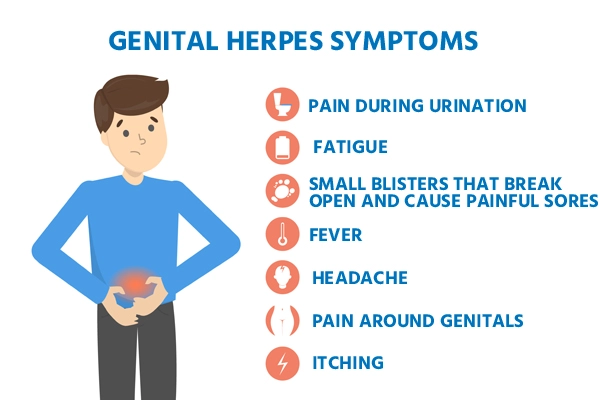Herpes simplex virus (HSV) infections, including both oral herpes (HSV-1) and genital herpes (HSV-2), are common viral infections that affect millions of people worldwide. While there is no cure for herpes, antiviral medications like Acyclovir cream can help manage symptoms and reduce the frequency of outbreaks.
However, some people seek natural alternatives or adjuncts to conventional treatments. In this blog, we’ll explore natural antiviral options that have been studied for their potential effectiveness against herpes viruses, focusing on the strongest natural options based on current scientific evidence. Acyclovir cream uses is used to treat first outbreaks of genital herpes.
Understanding Herpes Simplex Virus:
Herpes simplex viruses are highly contagious and can cause recurrent infections characterized by painful sores or blisters. HSV-1 primarily causes oral herpes, typically manifested as cold sores around the mouth, whereas HSV-2 is primarily responsible for genital herpes, characterized by sores in the genital area. Both types of herpes can also cause infections in other parts of the body, including the eyes and central nervous system.
Natural Antiviral Options for Herpes:
Several natural compounds have shown promise as antiviral agents against herpes simplex viruses. It’s important to note that while these options may offer some benefits, they are not substitutes for medical treatment, especially for severe or recurrent infections. Here are some of the strongest natural antiviral options based on current research:
- Lemon Balm (Melissa officinalis):Lemon balm is a member of the mint family and has been traditionally used for its medicinal properties, including its antiviral effects against HSV. Studies have shown that lemon balm extract, when applied topically or taken orally, can reduce the severity and duration of cold sore outbreaks caused by HSV-1. The active compounds in lemon balm, including rosmarinic acid and flavonoids, are believed to inhibit viral replication.
- Propolis:Propolis is a resinous substance collected by bees from tree buds and sap. It has been used in folk medicine for its antimicrobial and antiviral properties. Research suggests that propolis may have antiviral activity against HSV, both HSV-1 and HSV-2. Topical application of propolis ointment has been shown to reduce the duration and pain of genital herpes outbreaks.
- Aloe Vera:Aloe vera is well-known for its soothing properties and has also been studied for its antiviral effects. Some studies suggest that aloe vera gel may inhibit HSV replication and reduce the severity of oral and genital herpes outbreaks when applied topically. Its anti-inflammatory properties can also help alleviate symptoms such as pain and itching.
- Tea Tree Oil:Tea tree oil is derived from the leaves of the Melaleuca alternifolia tree and has potent antimicrobial properties. It has been studied for its effectiveness against various viruses, including herpes simplex viruses. Tea tree oil may help reduce the severity and duration of cold sores when applied topically. However, it should be used with caution as it can cause skin irritation in some individuals.
- Garlic (Allium sativum):Garlic contains compounds such as allicin, which exhibit antiviral, antibacterial, and antifungal properties. Some studies have suggested that garlic extracts or garlic oil may have inhibitory effects against HSV. Consuming garlic supplements or incorporating fresh garlic into your diet may potentially support immune function and help reduce the frequency of herpes outbreaks.
- Echinacea (Echinacea purpurea):Echinacea is a popular herb known for its immune-stimulating properties. While primarily used for treating colds and flu, some studies have explored its potential antiviral effects against HSV. Echinacea may help strengthen the immune system’s response to viral infections, potentially reducing the severity and duration of herpes outbreaks. However, more research is needed to confirm its efficacy specifically against HSV.
- Licorice Root (Glycyrrhiza glabra):Licorice root contains glycyrrhizin and flavonoids that have demonstrated antiviral activity against HSV in laboratory studies. Topical application of licorice gel or cream has been investigated for its ability to reduce the severity of cold sores and genital herpes lesions. It is believed to interfere with viral replication and reduce inflammation.
Natural Antiviral Use and Precautions:
While natural antiviral options like lemon balm, propolis, aloe vera, tea tree oil, garlic, echinacea, and licorice root show promise in managing herpes symptoms, it’s important to approach their use with caution:
- Quality and Purity: Use standardized extracts or products from reputable sources to ensure potency and safety.
- Topical Application: Many natural antivirals are applied topically to affected areas. Ensure proper dilution and perform a patch test to check for skin sensitivity.
- Consultation: Talk to a healthcare provider before using natural remedies, especially if you are pregnant, breastfeeding, have allergies, or are taking medications.
- Complementary Approach: Natural remedies should complement, not replace, prescribed antiviral medications for herpes. Consult a healthcare provider for a comprehensive treatment plan.
Conclusion:
Natural antiviral options such as lemon balm, propolis, aloe vera, tea tree oil, garlic, echinacea, and licorice root offer potential benefits for managing herpes symptoms. While these options can be part of a holistic approach to supporting immune health and reducing outbreaks, they are not substitutes for medical treatment. For individuals with herpes simplex virus infections, including oral and genital herpes, it’s essential to work with a healthcare provider to develop a personalized treatment plan that may include antiviral medications and appropriate use of natural remedies. By combining evidence-based approaches with holistic care, individuals can effectively manage herpes symptoms and support overall well-being.



More Stories
Dental Implant Pricing: Expert Guide & Insights
Your Path to Parenthood: Affordable & Transparent Surrogacy
Multivitamins for Women’s Stress Relief